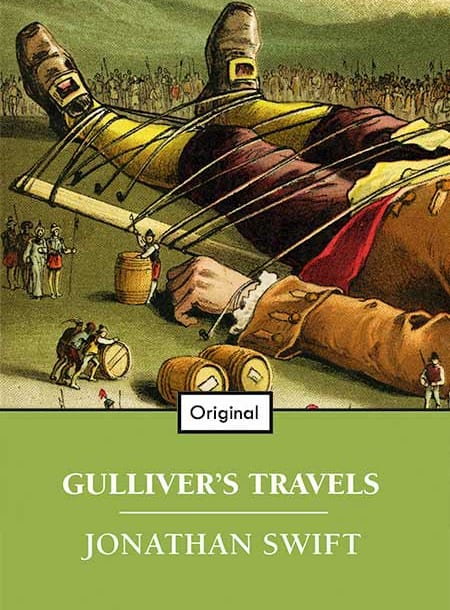Gulliver goes on four separate voyages in Gulliver's Travels. Each journey is preceded by a storm. All four voyages bring new perspectives to Gulliver's life and new opportunities for satirizing the ways of England.
The first voyage is to Lilliput, where Gulliver is huge and the Lilliputians are small. At first the Lilliputians seem amiable, but the reader soon sees them for the ridiculous and petty creatures they are. Gulliver is convicted of treason for "making water" in the capital (even though he was putting out a fire and saving countless lives)--among other "crimes."
The second voyage is to Brobdingnag, a land of Giants where Gulliver seems as small as the Lilliputians were to him. Gulliver is afraid, but his keepers are surprisingly gentle. He is humiliated by the King when he is made to see the difference between how England is and how it ought to be. Gulliver realizes how revolting he must have seemed to the Lilliputians.
Gulliver's third voyage is to Laputa (and neighboring Luggnagg and Glubdugdribb). In a visit to the island of Glubdugdribb, Gulliver is able to call up the dead and discovers the deceptions of history. In Laputa, the people are over-thinkers and are ridiculous in other ways. Also, he meets the Stuldbrugs, a race endowed with immortality. Gulliver discovers that they are miserable.
His fourth voyage is to the land of the Houyhnhnms, who are horses endowed with reason. Their rational, clean, and simple society is contrasted with the filthiness and brutality of the Yahoos, beasts in human shape. Gulliver reluctantly comes to recognize their human vices. Gulliver stays with the Houyhnhnms for several years, becoming completely enamored with them to the point that he never wants to leave. When he is told that the time has come for him to leave the island, Gulliver faints from grief.
Upon returning to England, Gulliver feels disgusted about other humans, including his own family.
